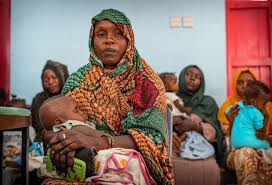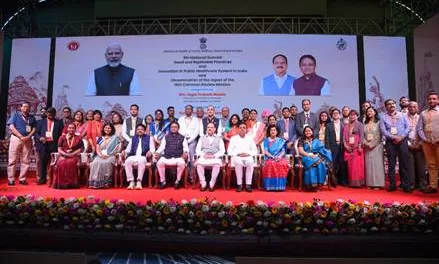In a significant stride towards bolstering rural healthcare in India, the last decade has witnessed remarkable progress, offering better access to quality health services for those residing in remote areas.
This transformation can be attributed to the expansion of telemedicine and the adoption of digital health solutions such as Artificial Intelligence (AI) and Machine Learning (ML). The government’s National Digital Health Mission has played a pivotal role in this evolution, contributing to reductions in maternal and child mortality rates, the eradication of polio, and the recent elimination of visceral leishmaniasis or Kala-azar.
Despite these achievements, challenges persist, notably the shortage of skilled healthcare professionals and the relatively slow pace of technological advancement in rural regions.
Himanshu Sikka, project director of SAMRIDH, a blended finance (BF) facility supported by USAID and implemented by IPE Global, emphasized the significance of technological innovations in healthcare. “Over the last decade, India has made substantial progress in healthcare through technology and innovation. Telemedicine and digital health solutions have expanded access to remote areas. Innovations in medical devices and diagnostics have enhanced affordability and accuracy,” Sikka stated.
He highlighted the integration of AI and ML and the National Digital Health Mission as transformative steps towards more accessible, efficient, and patient-centric healthcare. However, he stressed the need for sustained investment in training, technology, and community collaboration to achieve universal health coverage and bridge the urban-rural healthcare gap by 2030.
SAMRIDH’s initiatives, such as sickle cell screening in remote areas of Odisha’s Phulbani and Kandhamal, utilizing drones for over 400 tests, exemplify innovative approaches to address healthcare challenges in rural regions.
Priyadarshi Mohapatra, Founder of CureBay, underscored the advancements in medical technology and health education programmes in rural areas over the past decade. “These advancements have collectively bolstered the quality of care across the nation, leading to reductions in maternal and child mortality rates,” Mohapatra remarked.
CureBay ensures accessibility to quality healthcare in remote areas through its eClinics, powered by an intelligent tech platform offering online consultations and a comprehensive range of services. The startup has positively impacted over 1,86,000 patients in Odisha and Chhattisgarh.
Despite progress, Smriti Tandon, Co-founder of Online Chikitsa Mitra, highlighted the vast gap in healthcare access between urban and rural India. “As per NHM Rural Health Statistics 2021-22, despite a 51 per cent increase in doctors, there is still a significant shortfall, with a 3.1 per cent deficit of the total requirement,” Tandon noted.
Online Chikitsa Mitra’s network of over 500 e-Clinics within local medical stores in remote areas aims to address this gap by connecting rural patients to a national network of medical specialists via teleconsultations, facilitated by trained store facilitators and a user-friendly platform.
The progress in rural healthcare over the last decade signifies a promising trajectory towards achieving equitable healthcare access for all Indians, but concerted efforts are required to overcome persistent challenges and ensure no one is left behind in the journey towards universal health coverage.












